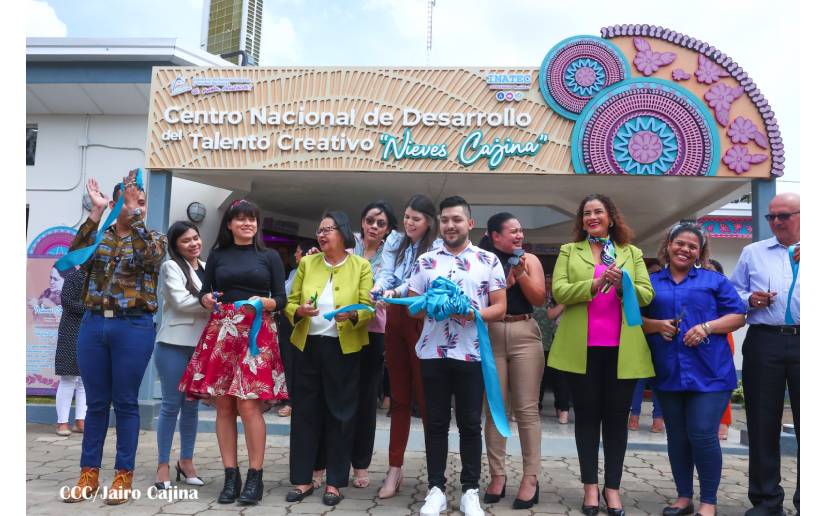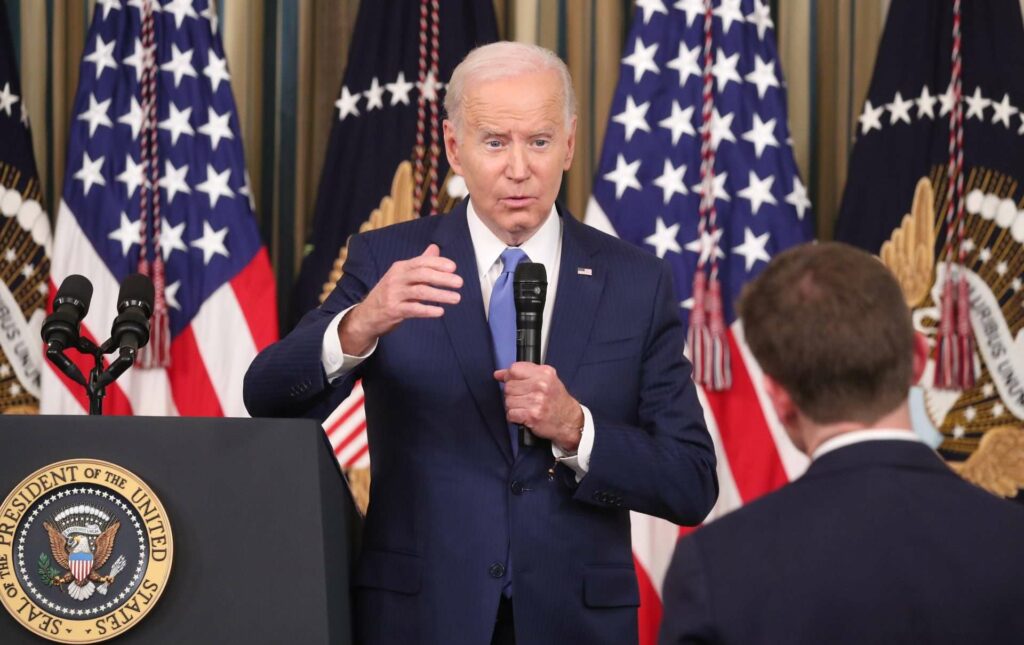Given the rise in the relocation of production chains, local governments are enlisting various actions; Entities from the northern border and Centro-Bajío regions say they are ready to receive new companies, while those from the south-southeast face more challenges.
CHIHUAHUA
Electromobility and aeronautical corridor, the strengths
Given the rise in nearshoring, Chihuahua, being a border state and having a strategic location, offers opportunities for the relocation of companies.
“We have an important list of 17 projects, not all of them are from Asia, but there are some that are; They are in the electrical, electronic sectors (…) We are positioning the state as a leader in electromobility. It has a very solid electrical and automotive ecosystem, we are also the main broker in the aeronautical sector”, conditions that make Chihuahua an attractive place, explained María Angélica Granados Trespalacios, Secretary of Innovation and Economic Development.
In an interview with El Economista, he explained that only in 2022, together with some projects that were completed at the end of 2021, they registered investments that amounted to 2.5 billion dollars and expects, given the rebound in nearshoring, to exceed 3.5 billion.
Regarding the available space, he stated that Ciudad Juárez and Chihuahua concentrate the largest number of employer companies, especially in the automotive, aeronautical and metal-mechanic sectors.
“An important aspect in our investment attraction promotion strategy is to offer available industrial land (…) there are industrial parks, space in Delicias, in Meoqui, in Cuauhtémoc,” he said.
“We have a project, an initiative, which is also important for the development of suppliers, giving them the conditions of infrastructure, electricity supply, talent,” added the secretary, adding that they began the year with the confirmation of Bombardier, which will to generate 1,300 jobs.
a pillar
For Chihuahua, sustainability is a pillar; For example, in the Cuauhtémoc Industrial Park, the total decarbonization of the site is intended to reduce the carbon footprint, as well as the granting of green financing and credits to MSMEs to promote sustainable development.
“In the industrial park that is in Delicias we are developing an important project so that it is a park that uses only clean energy, that is sustainable because we are also on our agenda requesting or choosing that these investments that arrive are friendly investments with the environment, that meet all the criteria,” said the secretary.
productive alliances
Regarding human capital, which is one of the challenges that states currently face due to the deficit of specialized labor, Chihuahua works to develop talent, forging alliances with the productive sector, with universities, with technical colleges and with high technology centers.
GUANAJUATO
Diversification of industrial clusters, the difference
While the government of Guanajuato, to take advantage of nearshoring, works in strategic areas such as granting business incentives, which is reflected in the current attraction of investments.
At the beginning of the current administration, they set an annual goal of attracting 5,000 million dollars and only last year investments of 2,000 million were made; that is, the accumulated amounts to more than 5,400 million, said Ramón Alfaro Gómez, secretary of Sustainable Economic Development of the state.
“It has been a strategy to consolidate the different industrial clusters that we have, not only talking about the automotive industry, we have clusters related to household appliances, leather-shoes, and food. We strongly promote value-added technology projects,” she said in an interview.
“The strategy has been one of continuity and, above all, diversification of economic activity. Guanajuato, which is the heart of the Bajío, continues to be very attractive for new projects and also for expansion projects of the plants that we already have”, he added.
The entity has 46 municipalities and in 15 of them an area of more than 6,000 hectares is available; in addition to the 50 established industrial parks.
With the arrival of new investments, thanks to the opportunities it offers in nearshoring, Guanajuato would exceed 6,000 million dollars and the generation of 50,000 jobs at the end of the current administration, that is, in 2024.
“Guanajuato is ready to take advantage of this trend, the nearshoring opportunity. We have the clusters, the supply, the ecosystem and the conditions to be an attractive and competitive destination to serve the most important market in the world, which is the United States and Canada,” said the secretary.
Online
Guanajuato, like the rest of the states, has great challenges in terms of sustainability, energy and water.
However, “we are attracting companies that are friendly to the environment, to the environment (…) As a public policy in terms of attracting investment, it is one of the most important conditions to be able to be subject,” said the local official.
Consolidation
Regarding the challenge of human capital, dual training is a consolidated strategy in Guanajuato, since for more than a decade they have promoted this scheme with German partners, so that young people can complement their knowledge before finishing their educational training.
Regarding training, they have more than 20 schools that have all the equipment, methodologies and instructors oriented towards the productive sector.
“We have training scholarships that allow the candidate to be able to train at the plant or abroad,” he said.
MEXICO CITY
Connection with customs, the logistics advantage
The government of Mexico City, in nearshoring, also stands out for its geographical location, in the center of the country. Within the framework of the recovery of the Vallejo industrial zone, the Pantaco dry port represents an advantage in terms of logistics and movement of goods, since it connects with Manzanillo, Lázaro Cárdenas, Veracruz, Nuevo Laredo, Mexicali and all customs offices in the northern border.
For Fadlala Akabani Hneide, Secretary of Economic Development, “it is a privilege for companies to have this railway scheme, for the transfer of goods. It should be added that the dry port of Pantaco is located not only next to Vallejo but also inside the industrial zone, which is located between the two airports of the city: Benito Juárez and Felipe Ángeles”.
The city has the most important communication logistics hub in the country in which large companies such as Amazon and Mercado Libre are investing, through intelligent distribution centers; in addition to having mobility and transport capacity for the arrival and departure of goods.
Another element to highlight, according to the local secretary, is the financial services and connectivity that exists with the North American market and with Central and South America.
“Mexico City is the financial capital of Latin America and we are the natural bridge between Central and South America with the largest market in the world, the North American,” he said in an interview.
There is a significant number of MSMEs that belong to the most important value chains, as a necessary complement to large investments.
“And here in Mexico we have this sector that adapts, which is part of the value chains to which this relocation effort is directed: electronics, electrical, automotive, microchips or semiconductors and a complement in terms of the plastics industry” , he referred.
Currently, investments in the Vallejo industrial zone amount to more than 15,000 million pesos, and at the end of the current administration they expect to reach 25,000 million. The capitals are focused on the real estate, pharmaceutical, financial, and automotive sectors, among others.
compliance schemes
The official explained that the companies that arrive in the capital of the country must have compliance schemes in energy matters, for which they seek to attract investments that do not generate the use of a lot of water, that are clean energies, factories that do not pollute.
“We are working in this direction and working on a series of guidelines so that companies know if they meet these requirements they can invest in the city,” he added.
guiding axes
On the subject of human capital, the training of technical personnel is one of the guiding principles of Mexico City. Since the beginning of the current administration, they have continued their academic links with the main public and private universities.
“We have the best trained technical personnel in our country (…) It makes the city a real attraction for companies to relocate,” said Akabani Hneide.
CAMPECHE
Supply chains, the drawback
Otherwise, for nearshoring in Campeche they present a problem in the supply chains, which according to Fernando Gamboa Rosas, Secretary of Economic Development, are very fragile, in addition to the location, in the south of the country; reasons why the state’s economy has not detonated.
However, one of the current strategies that they carry out is the promotion of the development of the Seybaplaya cargo port, which has around 6 meters of draft, but needs up to 10 to become competitive.
“The problem that Campeche has is that 80% of the oil that is produced in Mexico leaves here and the products go to the Federation and do not stay in Campeche (…) What we are trying to position ourselves in a constant, deep and permanent is to improve supply chains, with logistics, trying to see terrestrial connectivity, to deepen the Seybaplaya port, which is the one we have as a cargo port, ”said the official in an interview.
Another pending issue, he added, is air connectivity, since the entity is in last place in the region. “If we do not strengthen the supply chains, we will not be able to do anything with nearshoring (…) We are trying to capture all the surpluses from Yucatán.”
Pursuant
On the other hand, in Campeche they are working on the implementation of clean energy. Three months ago, the first photovoltaic solar plant with more than 380 million dollars was inaugurated, which produces enough clean energy.
“We comply with the environmental standard, promotion of clean energy and environmental legislation,” said Fernando Gamboa.
digital connectivity
In human capital, Campeche promotes digital connectivity so that in the state, mainly in universities, there is full connection.
“The digital connectivity part was very weak, very little strengthened, because suddenly there are areas in the state in which there is no communication. Bringing industry becomes practically impossible. Any industry needs digital productivity, and we are already working on a very complete project, which is well advanced,” said the head of the Secretariat for Economic Development.
Between April and August 2023, they plan to complete the state’s total connection process, in conjunction with the academy, to have high-speed internet uniformly and via satellite in the most remote communities.

















